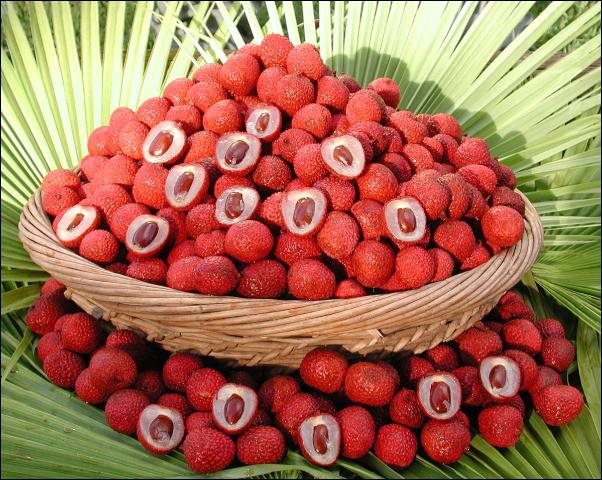By Clint Thompson
Tropical fruit production remains an option for South Florida producers. But there are inherent risks that accompany with producing these crops in the southern region of the state.

Credit: Ian Maguire, UF/IFAS TREC
Jonathan Crane, associate center director and tropical fruit specialist at the UF/IFAS Tropical Research and Education Center, highlighted the challenges with producing passion fruit, lychee and avocado during last week’s Citrus and Specialty Crop Expo.
“The thing about the cold is the biggest impact. Passion fruit, once you get to 28 or 30 degrees (Fahrenheit), I’m talking about mature vines, they start getting damaged and can be killed. Of course, flooding is also a problem. If it’s not well-drained soil, that’s a problem,” Crane said.
“When you look at lychee, it can take more cold, but now we have this (erinose) mite issue. You have to be careful not to introduce that mite into your grove. With avocado, again it’s the freezing temperatures.”
Especially with lychee production, farmers should be mindful of starting their production with clean material. The erinose mite is an invasive/quarantine pest that can reduce yields up to 80. It is an exotic mite that colonizes the leaves which reduces the vigor of the tree.
The mite was introduced approximately five or six years ago and has been found in 11 Florida counties.
“Lychee, you’ve got to make sure it does not have the erinose mite when you bring it to your farm. Otherwise, you’re going backward before you start,” Crane said. “This thing behaves like a fungus. You have to prevent it. You can’t cure it. You have to prevent the mite from colonizing the leaves.
“People in Asia have been living with it, but you’ve got to figure out how to live with it. Right now, it’s in the phase of just spreading everywhere.”
It is the same scenario with passion fruit with regard to viruses. Clean material is a must to avoid viruses like the woodiness virus, mottle, mosaic and vein-clearing virus.
“You’ve got to have clean material. If you don’t, you’re going backwards as you plant if it’s got viruses,” Crane said.









